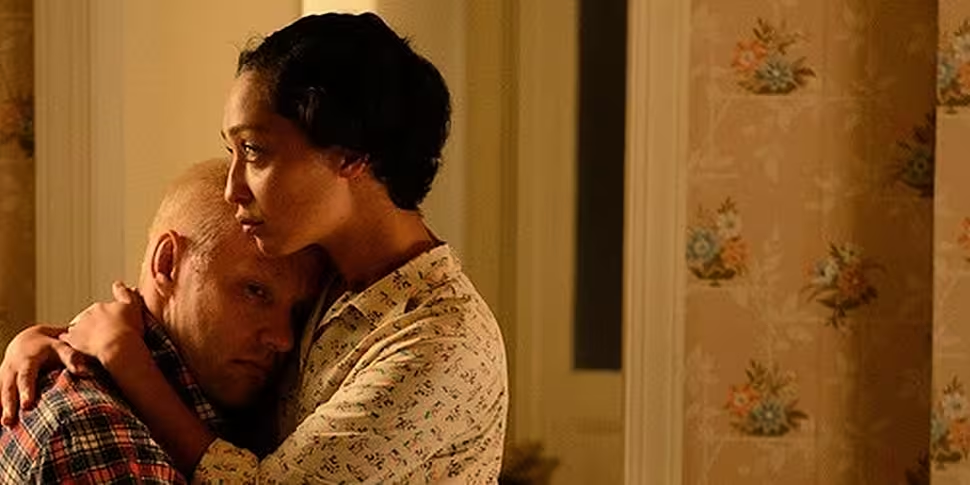Loving is a masterpiece of restraint. The film opens as Mildred, ‘String Bean’ to her family and friends, sits on a porch in rural Virginia, weighed down with anxiety as she works up the courage to tell her white boyfriend Richard something. “I’m pregnant,” she finally teases out of herself, stealing glances at him as the first shock of surprise hits him. They sit in silence for a moment, the only score the ambient noise of wind and crickets, before Richard breaks into the warmest smile, an expression of tenderness that somehow manages to lend his bad-looking smirk a graciousness. “Good,” he replies, simpering with delight, “That’s real good!”
Written and directed by American director Jeff Nichols, Loving was his second feature to debut in 2016, premiering at Cannes to warm reception. Telling the true story of two very ordinary people whose lives became the fulcrum for an extraordinary turning point in American civil rights, Richard and Mildred Loving’s 1958 marriage and its progression all the way to a unanimous decision in their favour by the Supreme Court of the United States a decade later was a landmark moment in the history of marriage equality and a fascinating look at the subtleties of racism. In his film, Nichols shows an acute understanding of where the real drama in telling a foregone conclusion can be explored, mostly layering the couple’s story with poignancy and emotion and punctuating with their legal battles, turning Richard and Mildred into humble and patient bystanders waiting to be unexceptional.
Don’t go into this expecting big moments of impassioned rhetoric about rights and liberties, nor expecting to see the kind of brutality and violence typically associated with civil rights films. There are no burning crosses, no beatings nor bruises meted out by heavy-handed and aggressive police officers or men draped in white sheets. Instead, the racism we see here is utterly indifferent to dignity, an exercise in humiliation and privilege, a pointless execution of power over a pair of people trying to live ordinary lives.
With their baby on the way, Richard (a career-defining performance by Australian actor Joel Edgerton) proposes to Mildred (Ruth Negga, beautifully natural and conveying so much by saying so little), taking her out of Virginia to Washington DC, where interracial marriage is not illegal. But when they return to their home with Mildred’s family, the local sheriff pulls them from their bed in the middle of the night, throwing them both in the local jail and before a small-minded judge. The Lovings are ordered to leave Virginia, unable to return together for 25 years, effectively forced out of the family structure they know and into city living. Lonely for what might have been, Mildred writes a letter to Bobby Kennedy, then Attorney General, kickstarting the process that slowly leads to the now infamous Loving V Virginia.

Michael Shannon as Grey Villet, the photographer whose images of the Lovings became iconic [Universal]
At first glance, Loving doesn’t seem to fit in with the rest of Nichols' films, explorations of paranoia with bursts of sudden supernaturalism. But Loving works as a companion piece, the couple thrust into an uncomfortable world where they have to look over their shoulders at all times. Someone sells them out at some point, whether the angry white boys Richard drag races against or one of his coworkers on a local building site, the shopworker who disapprovingly looks on as they gingerly touch while buying sewing patterns. This scrutiny and its effects on their lives explains why, when pushed to do press to give their case more notoriety by their ACLU lawyer Nick Kroll, they are reluctant, keeping their responses short and only really opening up to LIFE magazine photographer Grey Villet (played in delightfully chatty and disarming fashion by cameoing long-time Nichols muse Michael Shannon, now in their fifth collaboration).
Loving truly is a film dominated by its quiet performances, with Edgerton and Negga incredibly affecting as the married couple. Their romance, albeit lacking in moments of passion, is entirely convincing, love that is familial, faithful, and devoted. Edgerton, bleached and buzzed cut, turns all of Richard’s reticence into controlled frustration and warm-hearted concern, while Negga’s physical performance, implying grand emotional weight in the most subtle movements and gestures, is wholly compelling. While nominations are really as much as this kind of pared-back performances can expect in awards season, they are moving and tremendously touching, likely to stay with you far longer than an acceptance speech.
Loving (12A/123mins) is released nationwide on February 3rd
Verdict: ★★★★★ Heartrending and quietly provoking, perfect performances from the lead actors and expert direction make for one of the most meaningful experiences at the cinema this year.









